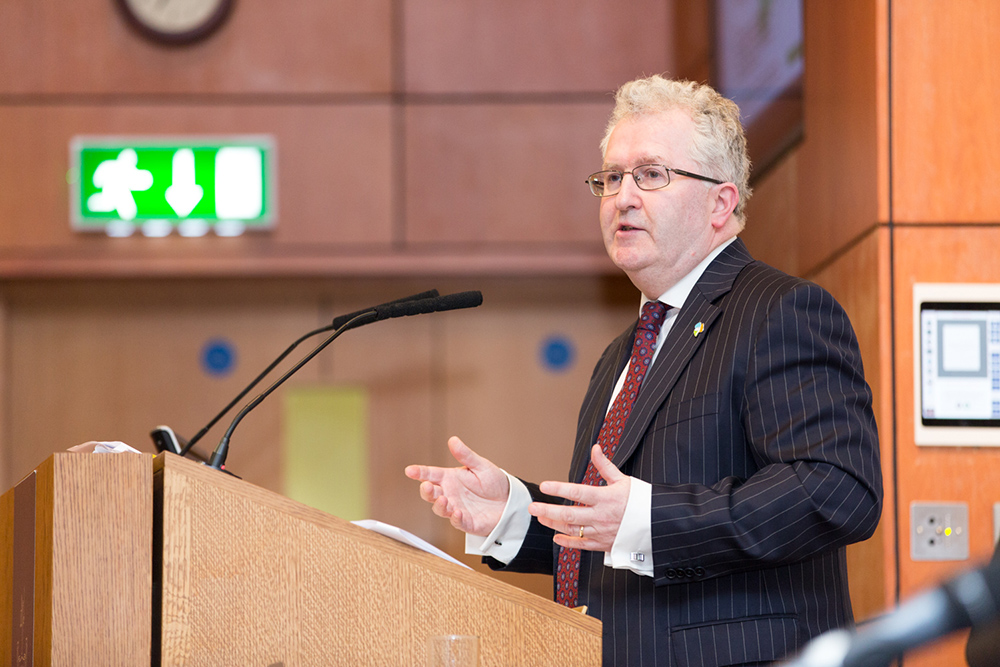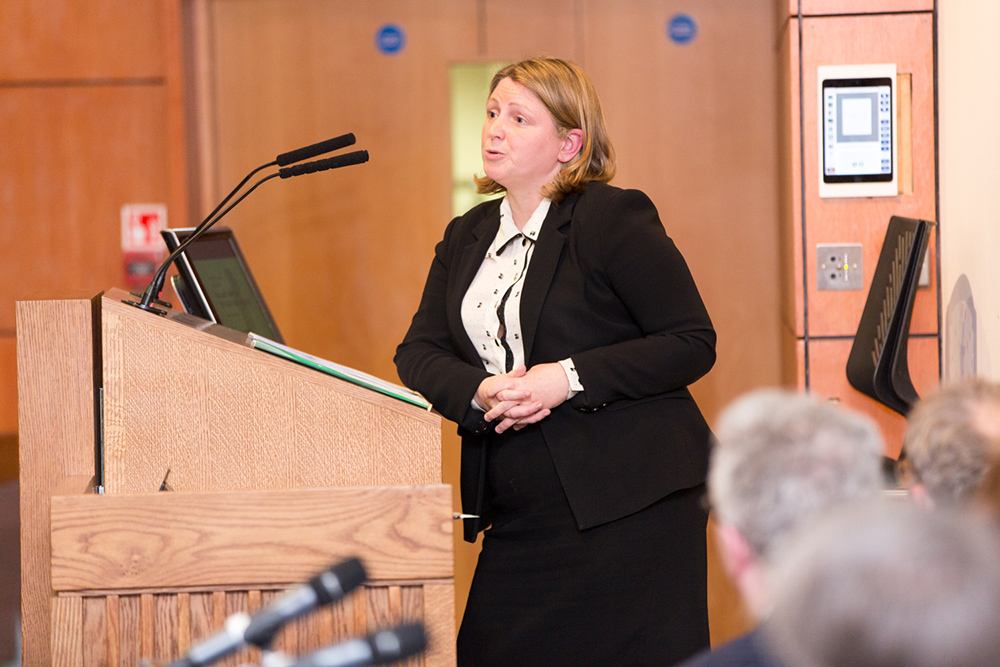Leading Irish lawyers voice frustration over lack of progress on human rights after Brexit

Leading Irish lawyers voiced frustration with Britain’s lack of progress on the issue of human rights protections after Brexit at the Hibernian Law Journal’s annual lecture.
A packed room at Blackhall Place heard Attorney General Séamus Woulfe, FLAC chairperson Éilís Barry SC, Doughty Street barrister Caoilfhionn Gallagher QC, and Professor Conor Gearty of LSE wrestle with the issue of fundamental rights across Ireland after the UK leaves the EU.
Opening the lecture, Mr Woulfe pointed out the apparent contradictions vis-à-vis fundamental rights in the Draft Withdrawal Agreement signed by the UK in March. The Agreement expressly states that the EU Charter of Fundamental Rights will no longer apply in the UK after exit day, 29th March 2019. However, later in the text, the Agreement states that all fundamental rights protected by the EU Charter shall remain applicable to the UK after exit.
This “curious clause”, Mr Woulfe said, is further confused by the suggestion by some that the EU Charter rights would only be applicable in the UK to EU citizens. This would mean that Irish citizens in Northern Ireland would enjoy Charter rights, while non-Irish citizens would enjoy only the more limited protections in domestic law. This would result in parallel legal regimes on rights within the UK: one system for EU nationals, and another for UK nationals.

Pictured: Attorney General Séamus Woulfe
Ms Barry spoke on the work done by legal rights group FLAC and its northern counterpart, the Law Centre (NI), in preparation for Brexit. Both organisations are investigating how a British withdrawal from the EU Charter would affect the human rights framework which has been central to the post-Good Friday legal order north of the border.
Ms Barry cautioned that “no amount of clever legislative drafting will prevent a drop in human rights protections” once the Charter loses effect. She anticipates that while domestic legislation, such as the proposed Bill of Rights, would largely mirror documents such as the EU Charter of Fundamental Rights and the European Convention on Human Rights, the remedies available to victims of rights abuses would be more modest than those available in European law.
Ms Gallagher echoed her concerns. The main remedy under the proposed Bill of Rights would likely be a limited “declaration of incompatibility”, such as that issued by British courts when the State is found to be in breach of the Human Rights Act 1998, she said. She contrasted this sharply with the EU Charter of Fundamental Rights, which rules that provisions of either EU and national law which are incompatible with the Charter are void.
Ms Gallagher spoke also of the political consequences of Brexit for Irish citizens in Northern Ireland. For the first time, a substantial number of EU citizens will be deprived of their democratic right to representation in the European Parliament. Such a development, Ms Gallagher said, would be both repugnant to democratic ideals and politically unsustainable.

Pictured: Caoilfhionn Gallagher QC
The final speaker, Professor Gearty, delivered a blistering analysis of the political forces behind Brexit, and decried what he saw as a complete lack of awareness for the obvious challenges posed by Brexit for Ireland north and south. Northern Ireland, he said, was little more than an afterthought for what was essentially a victory for English nationalism. He shared his thoughts on the likely consequences of the several possible outcomes from Brexit.
In the event that an exit deal with the so-called Irish backstop is made, he predicted the backstop would become a long-term settlement, despite Theresa May’s insistence that it would be temporary pending a further EU-UK agreement. Northern Ireland would stay in the customs union and would remain largely under the jurisdiction of EU law, including the EU Charter.
In the event of a no-deal Brexit, Professor Gearty predicted “a political and economic catastrophe for the UK, similar to a military occupation”. He submitted that the Brexiteer wing of the Conservative Party has no realistic plan to make a success of Brexit, and the crisis may well give rise to a political realignment and a movement to rejoin the EU.
Indicating his own support for this outcome, he said: “I’m a Returner, not a Remainer … I don’t think that it would be positive for the UK to be ‘saved’ from Brexit by political elite … I believe Brexit and the resulting economic turmoil would lead to Britons understanding their place as a small-to-medium sized country in the world today and to rediscover the value of international cooperation, which is what the EU is founded upon.”
Kevin Burns, Irish Legal News








